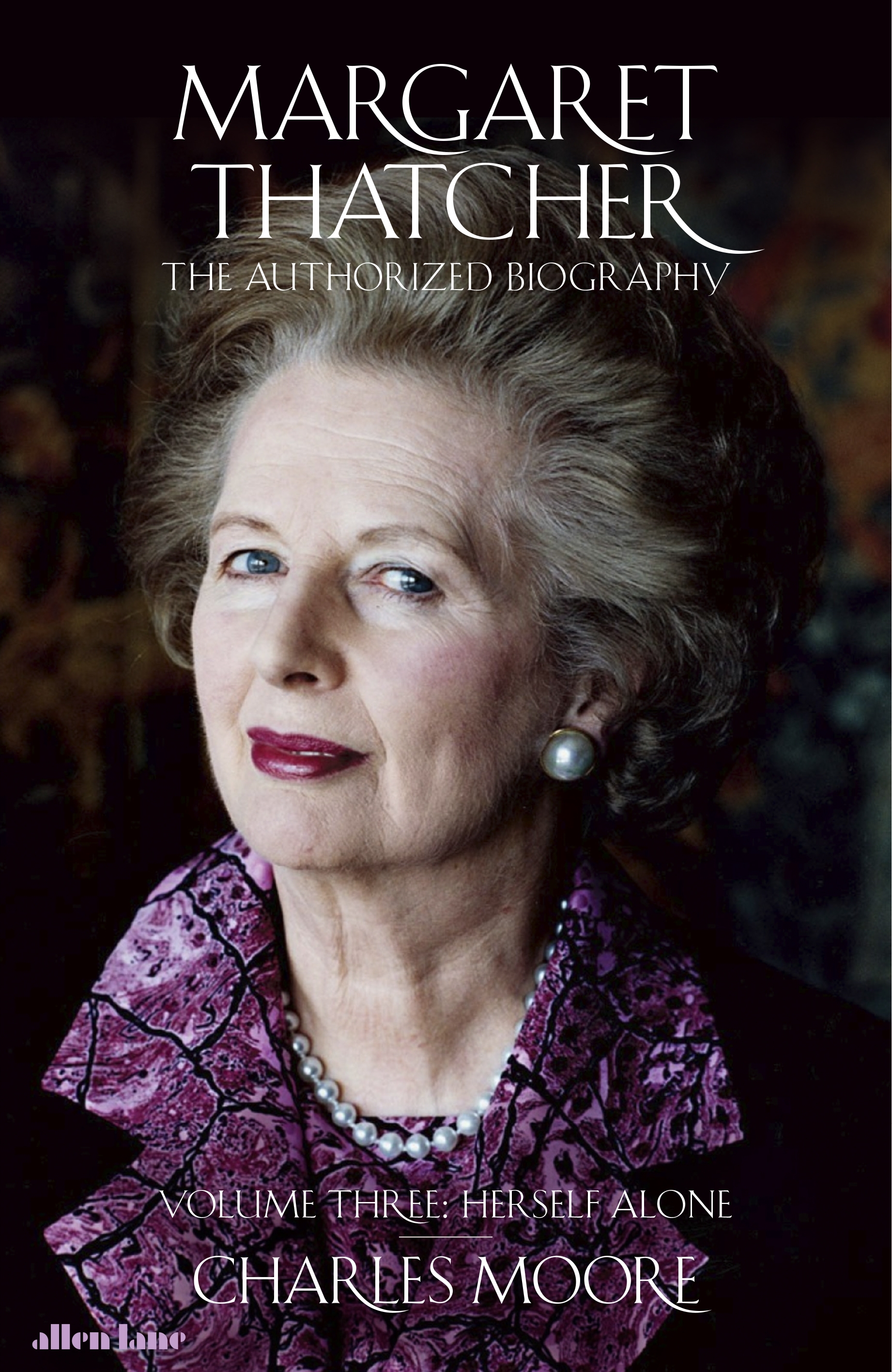July 12, 2019

Margaret Thatcher: The Authorized Biography, Volume Three: Herself Alone, by Charles Moore (Allen Lane, 880 pp., $24.06)
Forty years on, Margaret Thatcher’s election as Great Britain’s first female prime minister still looks miraculous. The rise of a woman to dominance, in the hostile, closed environment of the British Conservative Party, was astounding. In The Iron Lady (2011), Meryl Streep makes the point eloquently. But the miracle that followed Thatcher’s election is no less remarkable.
Right after World War II, Labour prime minister Clement Attlee, overly optimistic about the capacity of government to do great things, laid the foundations of the British welfare state. The sentiment was understandable: centralized authority had just proved itself capable of organizing the country’s resources in the war effort. Well-meaning do-gooders now assumed that the state could do the same postwar, defeating the peacetime adversaries of poverty and need. Filmmaker Ken Loach calls this attitude “the spirit of ’45.” The postwar economic consensus was so robust that it became known as Butskellism, since the policies of Rab Butler, the Conservative chancellor of the Exchequer from 1951 to 1955, and his Labour predecessor Hugh Gaitskell were indistinguishable.
The glory days of interventionism didn’t last, however. By 1979, a third of the British workforce was employed by government, directly or indirectly, yet unemployment continued to rise throughout the 1970s. Inflation rose to double digits, exceeding 25 percent, making even middle-class Britons insecure about their savings and purchasing power. Keeping it under control seemed impossible: government-owned businesses, unable to say “no” to the demands of the trade unions, administered a vast portion of the economy.
Thatcher recognized the economic crisis as a failure of politics. She offered a gospel of government retrenchment and individual initiative that sounded outdated. She wanted to make people responsible again for their economic destinies, instead of entrusting their fates to state guidance. This meant denationalizing the British economy. Before Thatcher took office, “privatization” was a word out of science fiction; ten years after she left office, it was a global norm. She changed England and, by changing England, changed the world.
Thatcher was guided by ideology without being an ideologue, as the third and final volume of Charles Moore’s biography demonstrates. She compromised when needed and used her political compass to pick her fights. The British don’t like designating “isms” for their prime ministers. There was no “Gladstonism,” and “Churchillism” is a rare usage, but “Thatcherism” is the exception. In 1999’s The Anatomy of Thatcherism, Shirley Letwin emphasized that Thatcherism was less ideology than attitude—an understanding of society as the spontaneous development of individuals and families, who ought to be the subjects of their own fate and not the passive objects of national politics. Thatcher aimed to stimulate self-reliance and independence, and she saw these virtues threatened by the culture of passivity that statism engenders. Victorian values like thrift, prudence, and diligence, she once told historian Gertrude Himmelfarb, “were the values when our country became great.”
While Thatcherism is mostly associated with a set of policies (privatization, tax cuts, monetarism), it should be seen as part of a broader cultural picture. Thatcher’s agenda benefited from years of discrete and tireless cultural work, mostly by the Institute of Economic Affairs, the forerunner of modern, market-oriented think tanks. But her instincts were at least as important as her ideas. Alfred Sherman—indispensable as an early advisor and speechwriter but eventually excluded from her inner circle—once told me that Thatcher never read Friedrich Hayek or Milton Friedman, as she had claimed, but only Frederic Bastiat. Bastiat’s classic essay, “What Is Seen and What Is Not Seen,” with its emphasis on the long-term, unintended consequences that flow from apparently beneficial efforts, so that intended societal gains end up as losses, is perhaps the only economic lesson any prime minister needs to learn. That we shouldn’t clip the wings of those who will follow us down the road is perhaps the gist of Thatcherism, with its call to responsibility in the public sphere to allow for liberty in the private one.
Thatcher embodied the highest qualities of leadership. Though no scholar, she was scrupulous, attentive, and curious. She slept little and worked hard. Was she a populist? Among those who define themselves as such, she stands as a symbolic figure because she was brought down in 1990 by the Tories’ europhile wing. Certainly, the British political establishment always looked down on this shopkeeper’s daughter. And yet Thatcher’s defining quality, and the reason why we still speak of Thatcherism, is that she told people things that they didn’t want to hear. She may have not liked the eurocrats in Brussels, or the Sir Humphrey Appleby-style bureaucrats at home, but she never told people that they could blame those bureaucrats, or anyone else, for their own faults or failures. In a world where political success goes hand in hand with providing suitable scapegoats for voters, this is unusual, to say the least. Thatcher’s like won’t come around again.
Alberto Mingardi is director general of the Italian free-market think tank, Istituto Bruno Leoni. He is also assistant professor of the history of political thought at IULM University in Milan, a presidential scholar in political theory at Chapman University, and an adjunct fellow at the Cato Institute.
No comments:
Post a Comment